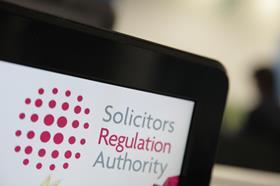The Solicitors Regulation Authority has said it remains committed to its enforcement strategy after approving an apparently lenient sanction for an alcohol-related motoring offence.

In a regulatory settlement published last week, the regulator agreed to rebuke solicitor Meepe Widyaratne for his conviction last August. The case has similar features to another where the solicitor was fined almost £14,000 – a record SRA fine for a drink-drive offence.
Widyaratne had been convicted at Colchester Magistrates’ Court of driving whilst unfit through excess alcohol. He had been discovered asleep in the driver’s seat of a car in 2022, with the car parked partly on the verge and the engine running. Widyaratne, a solicitor with east London firm Corbin & Hassan LLP, told officers he was driving a 30-mile journey from his office to his home, and failed to provide a breath sample at the roadside.
A police station test found he was two-and-a-half times over the legal alcohol limit and he was charged with driving whilst unfit. He was sentenced to an 18-month driving disqualification and fined £849.
The SRA said this was an isolated incident and out of character, with no harm caused to person or property. The solicitor of 10 years cooperated with police and promptly reported his conviction to the SRA.
The regulator said Widyaratne's conduct had been reckless. A rebuke was deemed appropriate to maintain professional standards and uphold public confidence in the solicitors’ profession, as well as to deter others from similar behaviour. There was no further explanation why a rebuke rather than a fine was necessary, although it is understood that further mitigation was accepted.
There may be surprise in the profession that the SRA appears to apply different approaches to sanctioning people with convictions where the court has issued similar punishments. In January, there was widespread interest in the SRA fining a solicitor almost £14,000 after he was convicted of driving a car while under the influence of alcohol. On that occasion the individual was disqualified by the court from driving for 19 months and fined £437.
In that case, the SRA said mitigating factors were also that this was an isolated incident and out of character, that no harm was caused and there was prompt reporting of the conviction. The conduct of both this solicitor and Widyaratne was described as reckless, with the only difference appearing to be that the former had the potential to cause ‘significant harm’.
The SRA did not comment on specific case details but a spokesperson stressed that no two cases are alike and they will always turn on their facts. He added: ‘Our approach is laid out in our enforcement strategy and when deciding on a sanction, we take into account a number of factors. These are laid out in more detail in our enforcement in practice guide on driving with excess alcohol convictions, and include prompt reporting, remorse shown and acting out of character.’
Changes to the enforcement strategy which came into force last year allow the SRA to set fines as a percentage of gross annual income in the most recent tax year. The regulator says that using gross income to set the level of the basic fine helps to provide a credible deterrent and uphold public confidence by ensuring that solicitors breaching the rules are fined at a level ‘commensurate with their position and financial standing’.




























